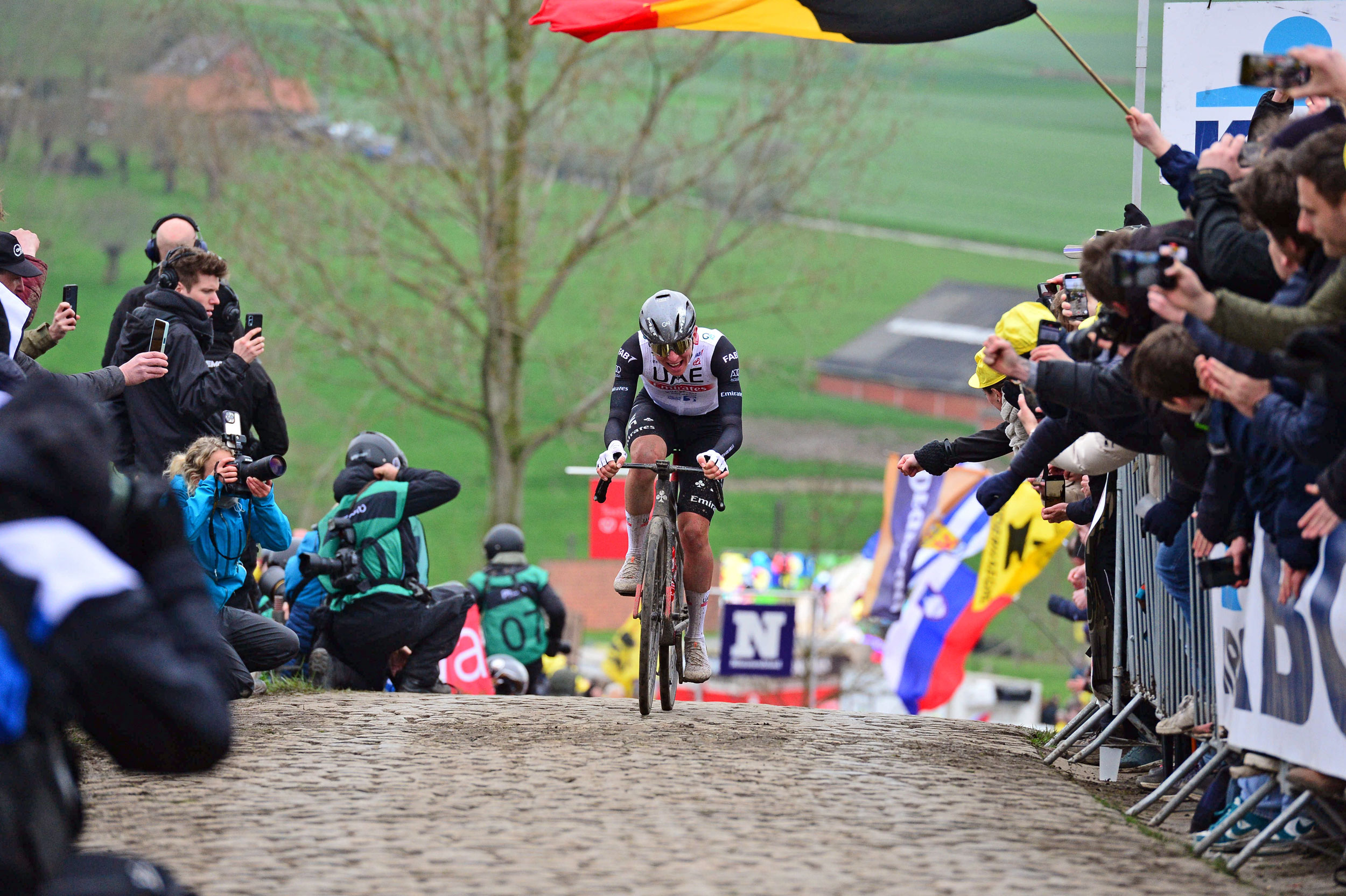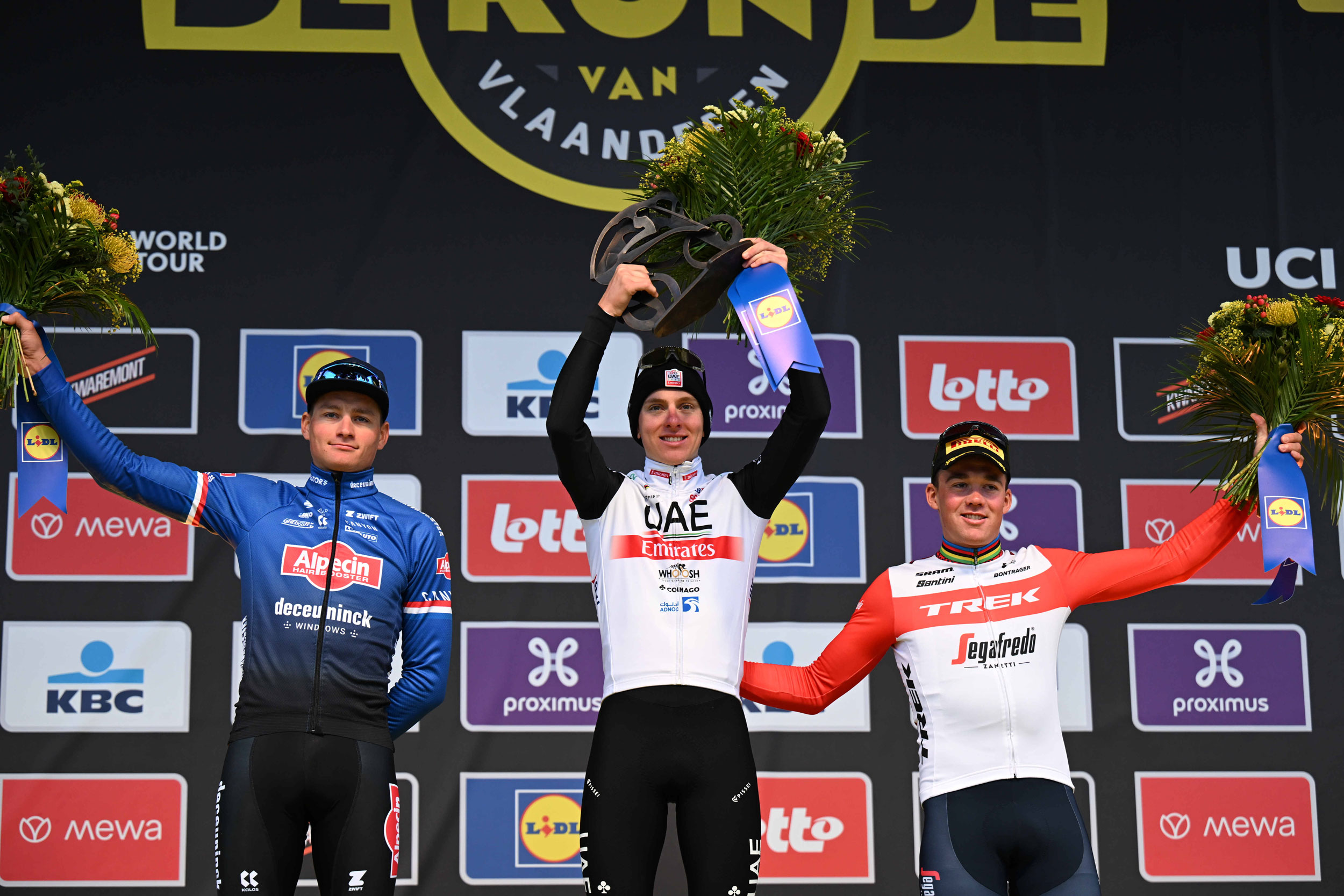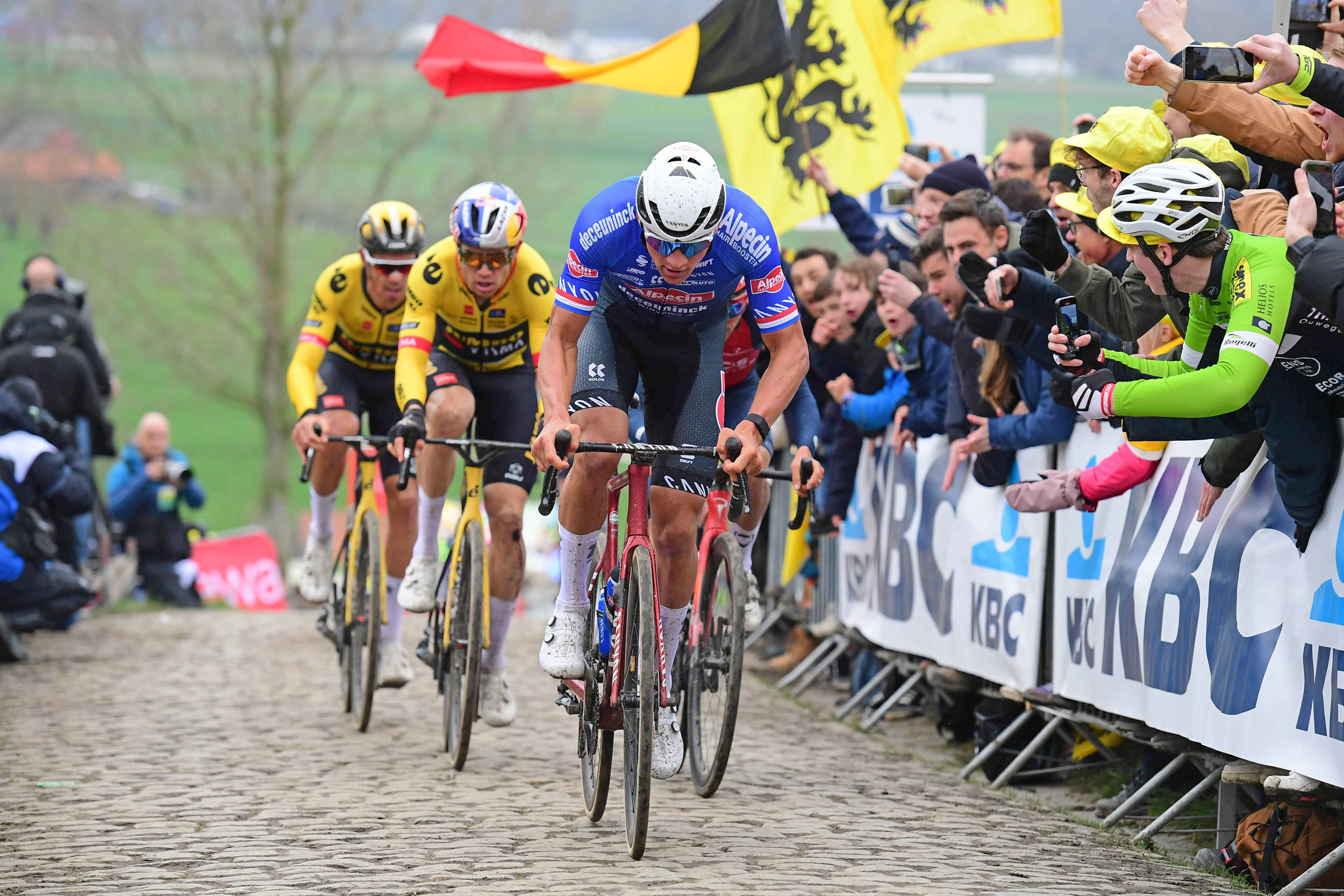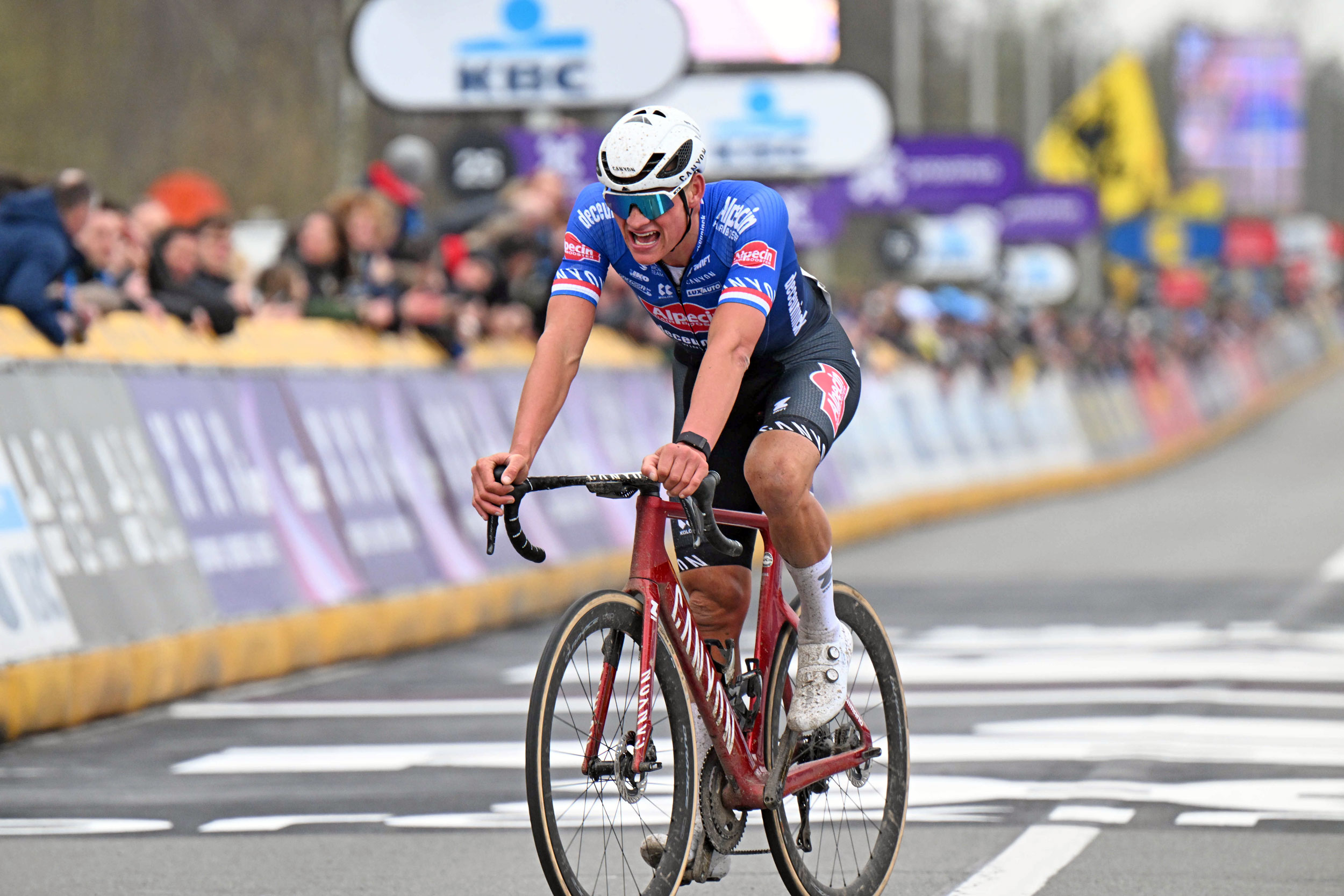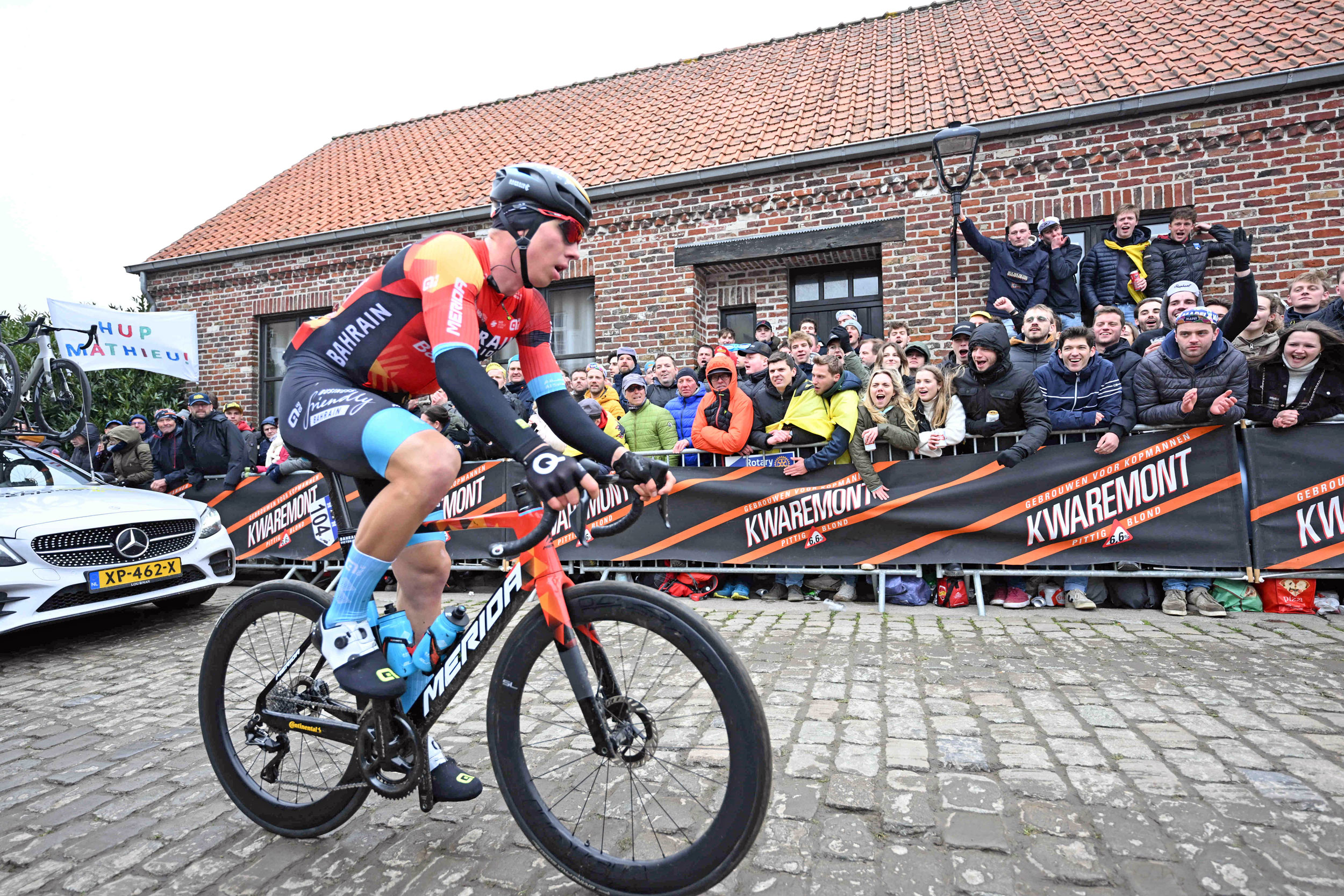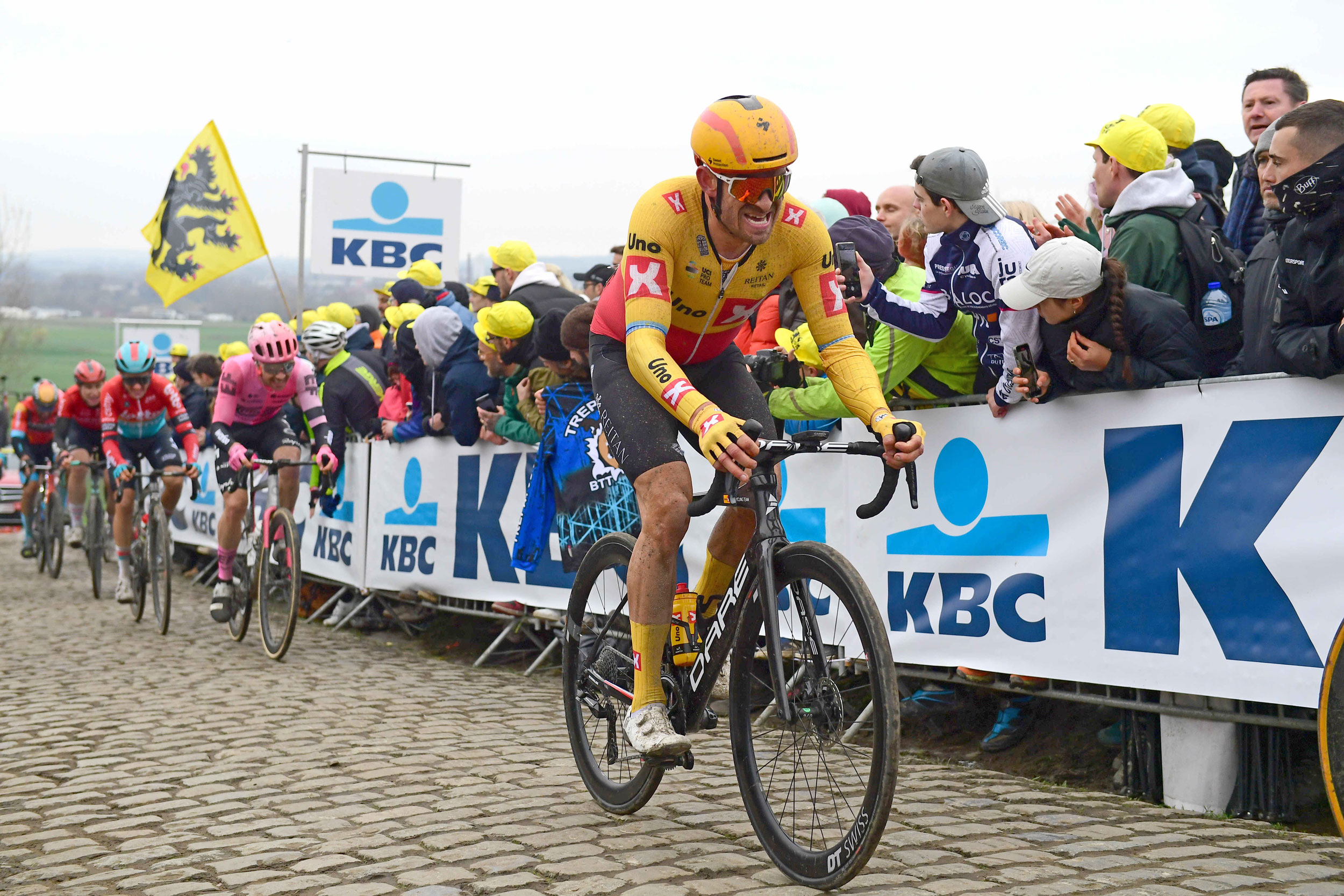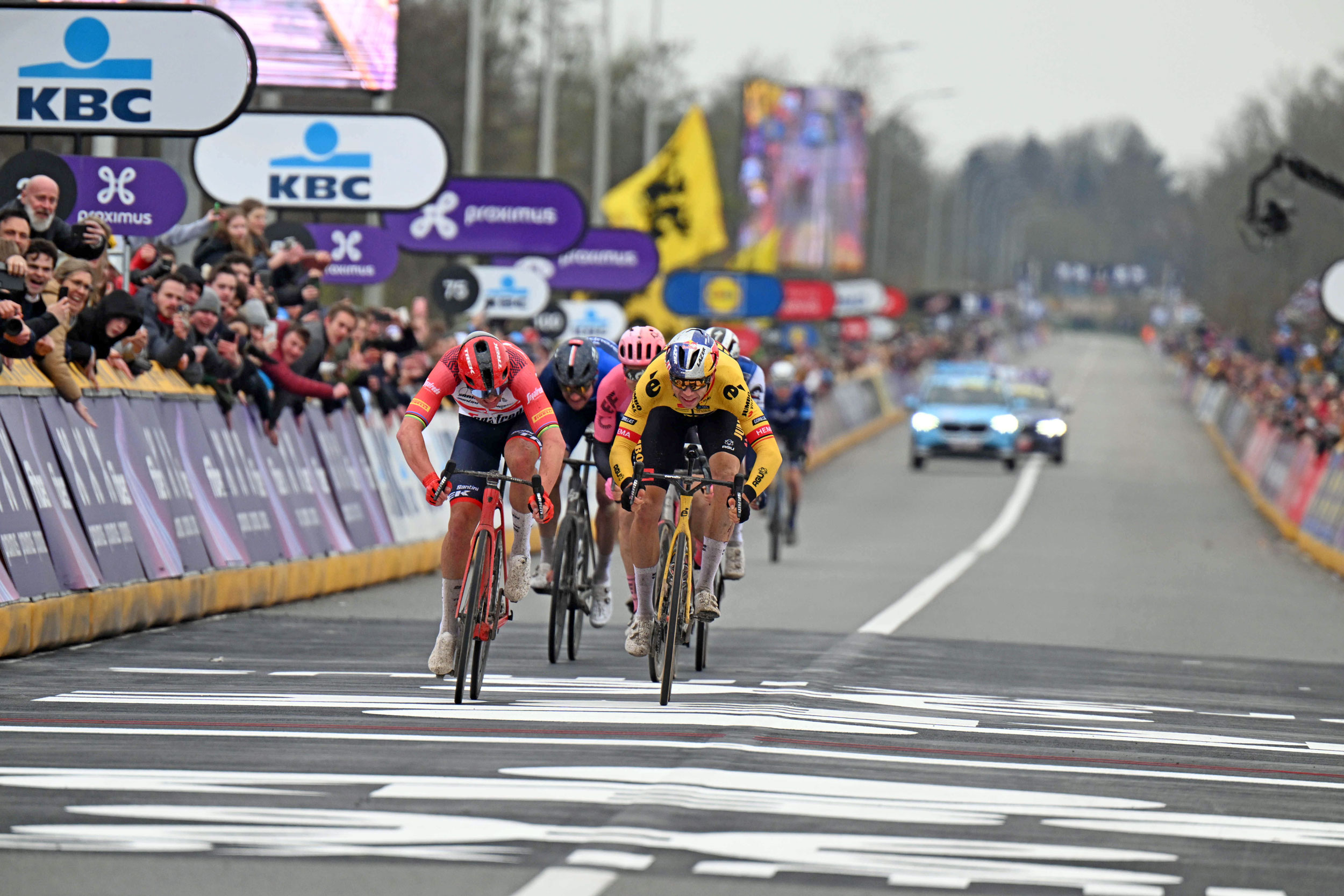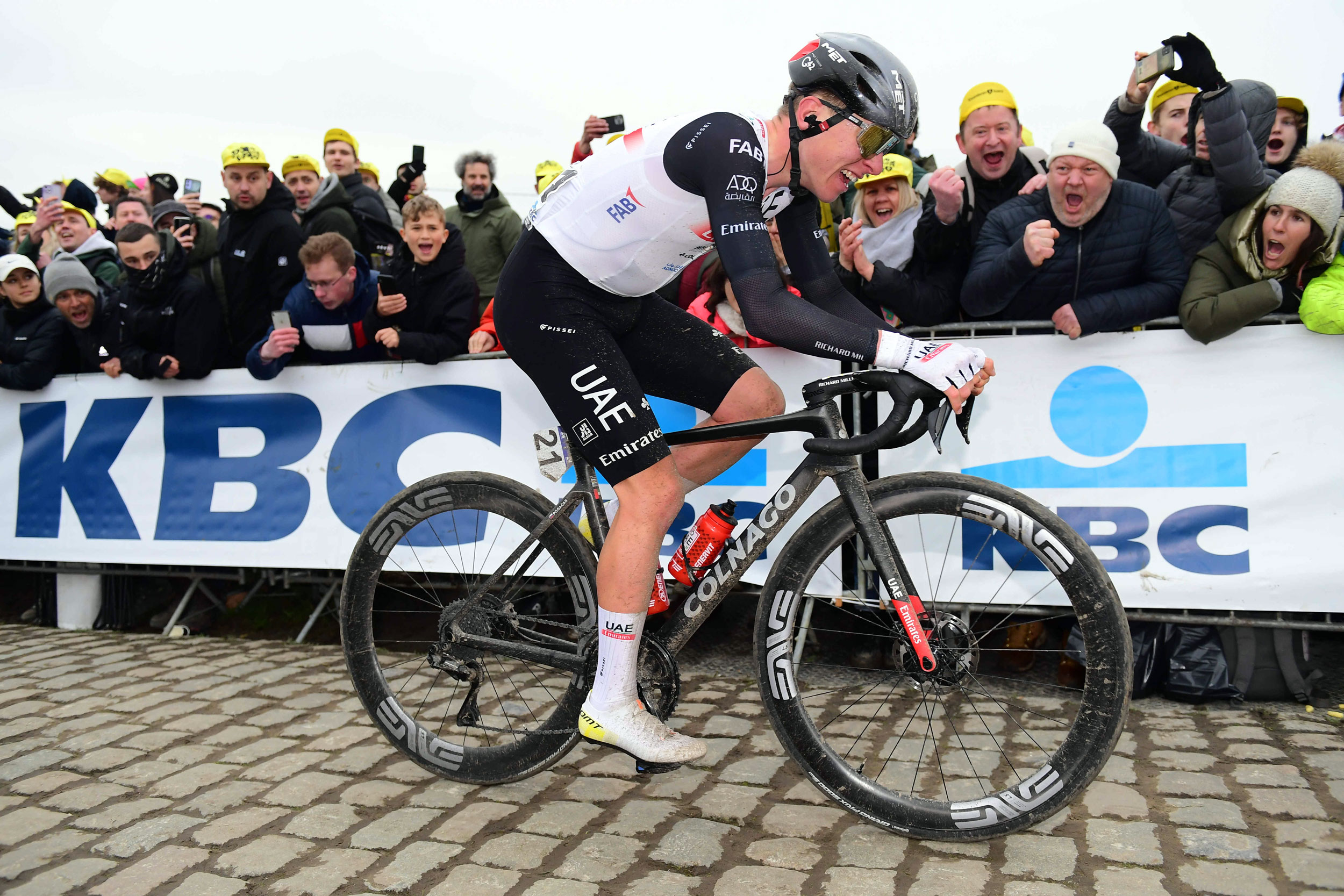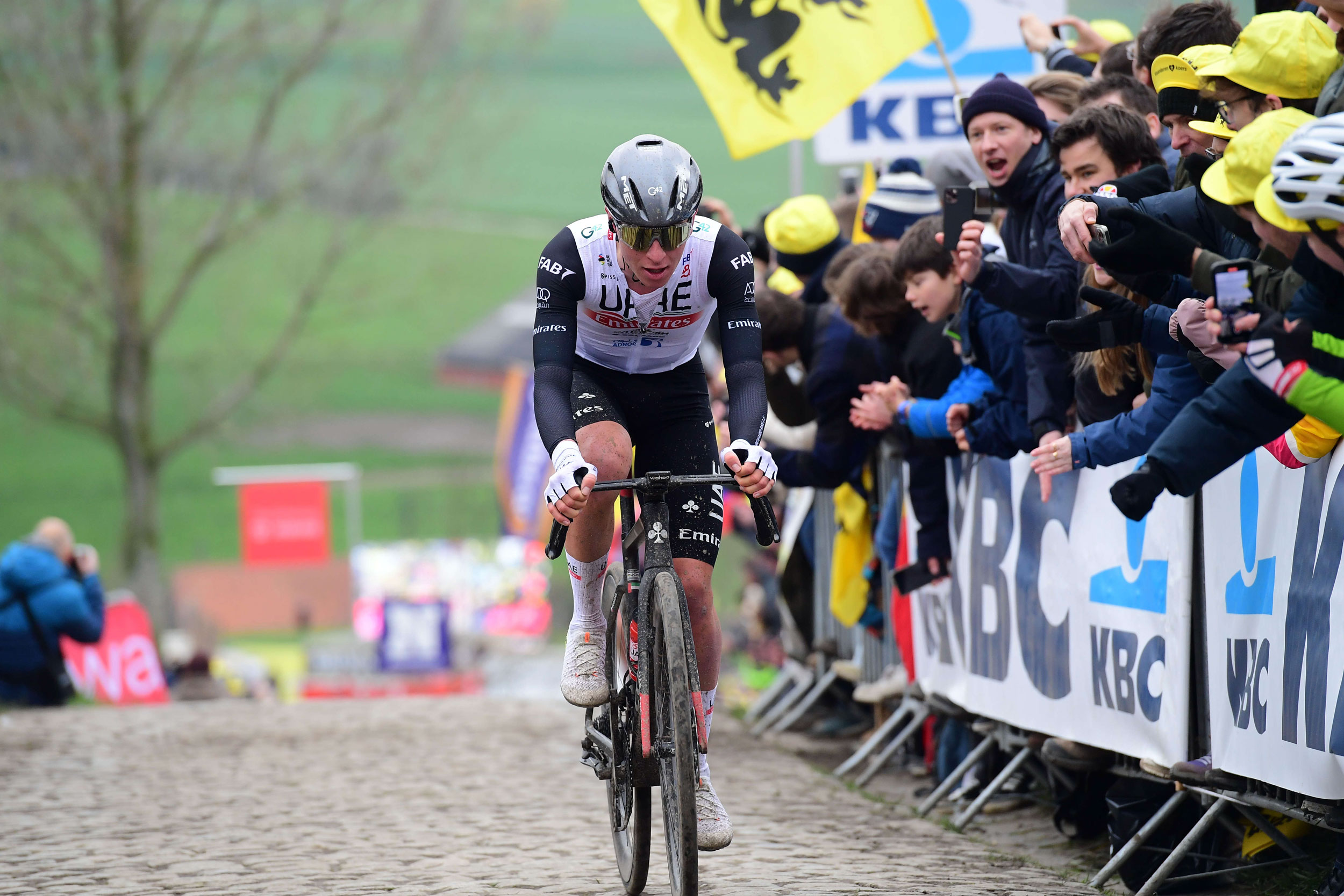The pace was high from the start. The list of casualties long. And the cobbled climbs were of course a feature of the 107th edition of the Ronde van Vlaanderen. At the end of the fastest edition ever, Tadej Pogacar triumphed in a race for the ages.
This is part one of a series about #RVV2023.
– By Rob Arnold (Photos by Stefano Sirotti)
It is widely regarded as the biggest one-day race on the calendar. The Ronde van Vlaanderen is always a classic contest and the 2023 edition will be remembered as one of the finest in years.
Tadej Pogacar became only the third rider to have won both de Ronde and the Tour de France and, he said afterwards, even if he doesn’t win the TDF again, his season is already a success.
“It was a day I will never forget.”
Pogacar had made no secret of the fact that the Ronde was a major target of his early season. He continues to set the standard in modern cycling, with a display of power, tactics and sheer tenacity that has added to his reputation as one of the finest riders in the sport – not just of this generation, but in the history of cycling.
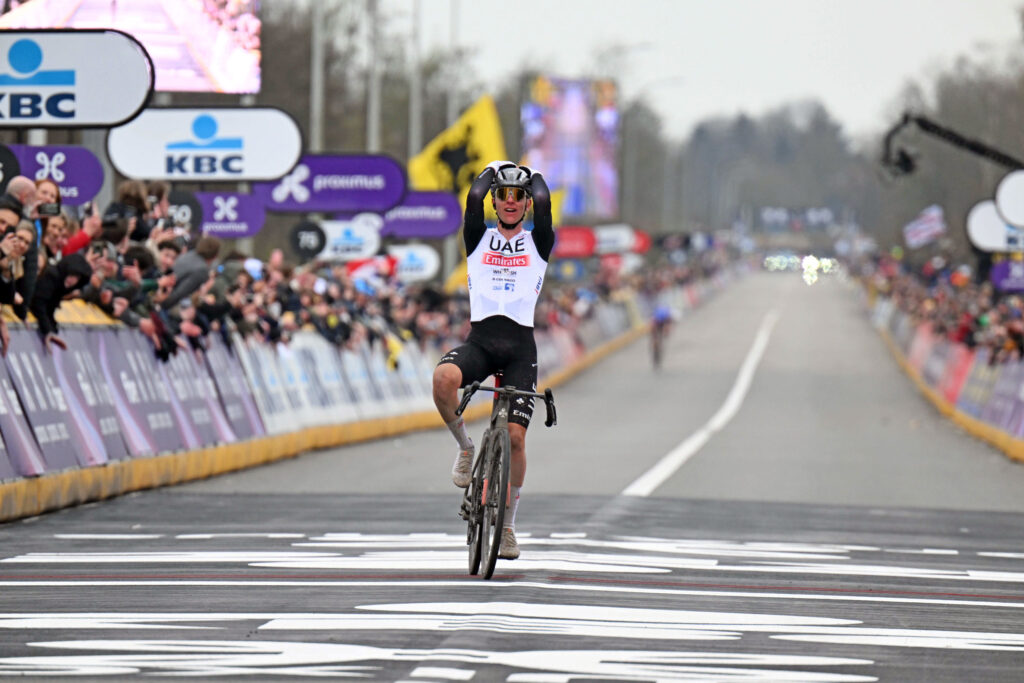
Tadej Pogacar takes the win in the 107th Ronde van Vlaanderen, beating two-time champion Mathieu van der Poel by 16 seconds with Mads Pedersen rounding out the podium after outsprinting Wout van Aert 1:16 after the Slovenian crossed the line in first place.
“I knew that to go solo, I needed to go on Kwaremont – the last time – and I just gave it my all.
“I almost cracked on the Paterberg… I knew that it was going to be tough, but it was the only way to go to the finish.”
His brutal acceleration on the final ascent of the Oude Kwaremont climb was expected and Pogacar delivered the knock-out blow on the steepest section of the cobbled climb which came after 257km of the 274km race.
There are many highlights of a contest that included plenty of lowlights because of crashes, some of which could have been avoided if riders hadn’t succumbed to temptation and raced on the edges of the roads, as relatively new regulations dictate.
While other favourites were knocked out of contention by crashes, Pogacar avoided any major mishap and powered on after a stunning display of teamwork set him up for the defining attack on the Kwaremont cobbles.
Renaat Schotte, who conducted the post-race interview, suggested to Pogacar that the Kwaremont was the “dream hill in the Tour of Flanders” and the winner agreed. “It suits me the most.
“We come with speed on the cobbles already suffering, so from then on it’s just pure power until the top, and it’s quite long to the top.”
As Schotte also highlighted during his interview, the only previous examples of a Tour de France winner also claiming the title of this one-day Classic are Louison Bobet (1st in the 1953, 1954 and 1955 Tours de France, and 1st in Flanders in 1955) and Eddy Merckx (the five-time TDF champion and winner of de Ronde in 1969 and 1975).
“I can say that I can retire after today and I will be proud of my career,” replied Pogacar.
The Slovenian now has won three of the five one-day Monuments in cycling: Il Lombardia (2021 and 2022), Liège-Bastogne-Liège (2021)… and now the Ronde van Vlaanderen. The other two are Milan-Sanremo (one of the few races he started in 2023 and did not win, finishing fourth in the Classic won by Mathieu van der Poel only two weeks earlier) and Paris-Roubaix (which is on next weekend and is not on Pogacar’s schedule for the year).
“This year I’ve been in some of the best shape of my life, but it was really tough to win,” said Pogacar of his efforts in MSR this March. “But we don’t give up.”
Schotte pushed Pogacar about his program for 2023 and asked if there will be a time when he considers also contesting the famous flat, cobbled Monument, Paris-Roubaix. “We’ll see,” he replied. “I need to gain a few kilos for Roubaix… I need to toughen my hands for the cobbles but maybe in the future.”
An average speed of 44.083km/h for 274km!
When there is as much prestige attached to a contest as there is for the Ronde van Vlaanderen, tactics we might see in other races are thrown out the window. A calm start was not at all on the script in Flanders on the first Sunday of 2023. Instead, the pace was high from the very beginning.
Inside the first hour the peloton had already covered over 50km and, despite constant attacking and counter-attacking, no break was allowed any leeway.
Rain abated but the wind had an impact with splits in the bunch forming when there was a change in direction. The first significant gap opened when an echelon formed in the opening hour with a host of pre-race favourites – including MVDP, and last year’s third place finisher Valentin Madouas – caught behind.
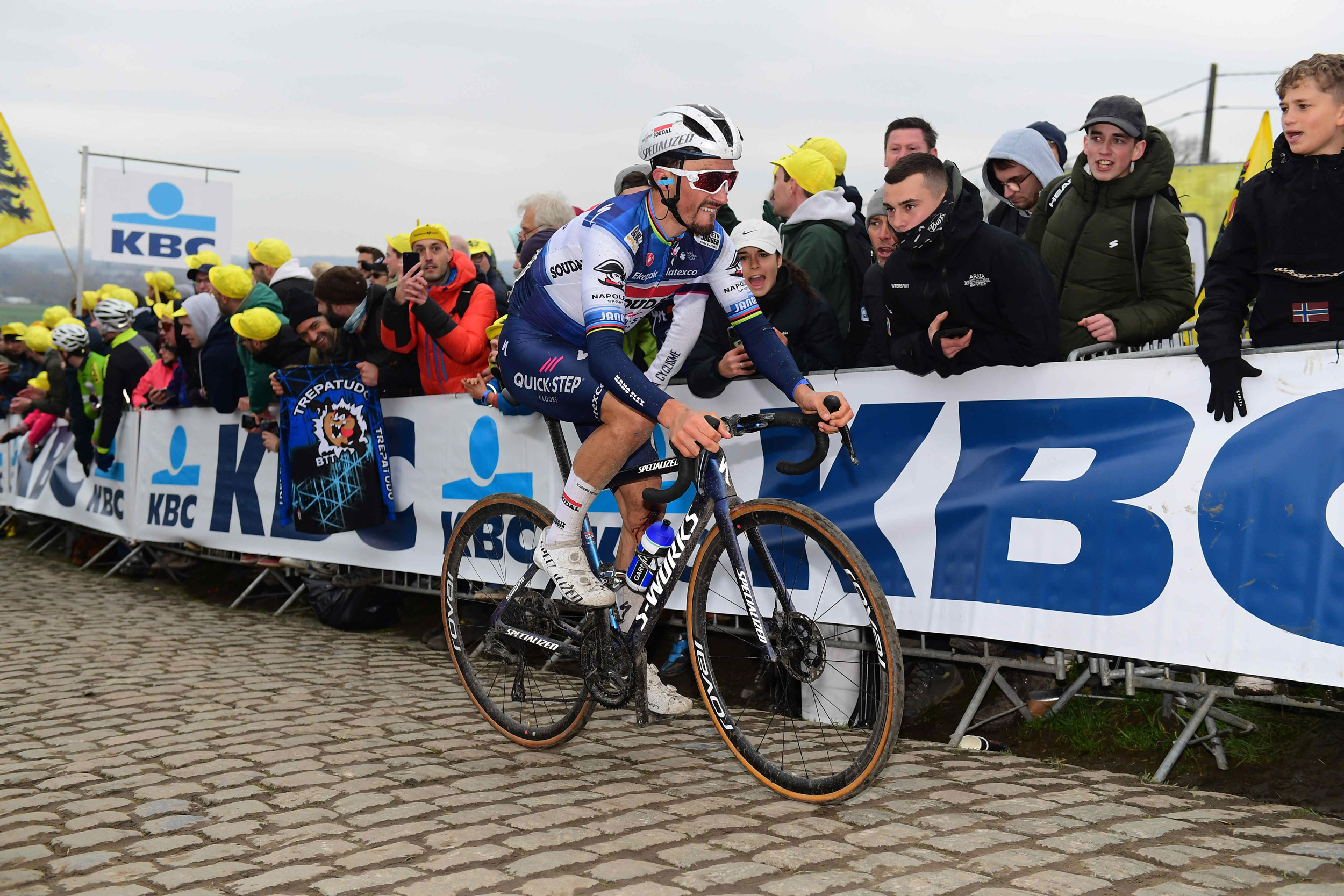
Julien Alaphilippe was one of the pre-race favourites caught up in crashes. He finished 51st (at 8:03), one place ahead of another title favourite Tom Pidcock of the Ineos Grenadiers.
It wouldn’t prove decisive but it cost a bit of energy for team-mates of van der Poel even before the first cobbled sector. Still, the Dutchman who is in stomping form in 2023 – as displayed with his stunning victory in Sanremo – and who has twice won the Ronde (2020 and 2022) kept his composure and paced himself throughout the day.
Eventually MVDP would become the main challenger to Pogacar, but that stanza of the race came after considerable carnage thinned out the field and knocked several big name riders out of the contest.
The casualty list included multiple former winners – Peter Sagan, Kasper Asgreen and Alexander Kristoff – and hindered the likes of Julien Alaphilippe and even Wout van Aert, who crashed but was able to continue after picking himself up off the tarmac.
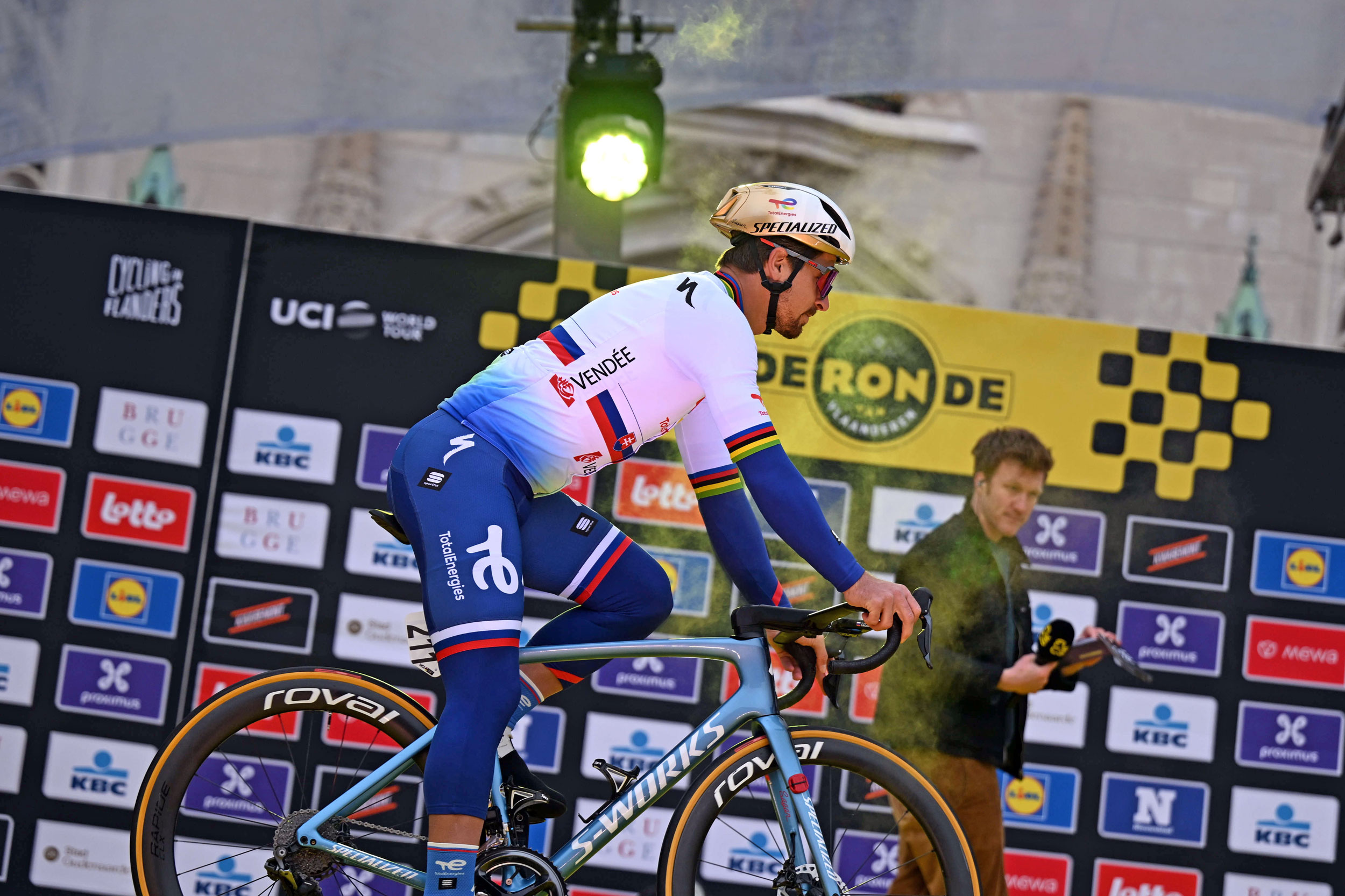
Peter Sagan, the winner from 2016, raced the Ronde van Vlaanderen for the final time in his career. He was one of the long list of casualties because of crashes… a DNF in his RVV farewell.
Rules exist for a reason
The biggest crash in a race that typically sees spills regularly – because of the prestige associated with the Ronde van Vlaanderen, and the associated anxiety – was caused by a rider doing exactly what the UCI is trying to stamp out.
Riding on the verge of the road or on footpaths when racing through the many towns and villages that are a feature of the complicated route is banned but when every team is striving to position their leaders at the head of the peloton, there are inevitably moments when riders stray to the sides.
Filip Maciejuk made a name for himself in the second Monument of 2023, but not in a manner he will like to remember. The Polish rider from Bahrain Victorious caused the biggest crash of the race yesterday with a manoeuvre on the left-hand side of the road that went rapidly from bad to worst-case-scenario.
With around 140km to go, Maciejuk found himself in a precarious position and there was little he could do to avoid riding onto the grass as he attempted to return to the road near the front of the peloton.
The vision of him speeding through a puddle and then hopping to the right and back onto the road will be replayed over and over on social media. It is a scene the UCI had hoped to avoid but one that eventually caused havoc after Maciejuk lost balance and skittled into Pogacar’s faithful team-mate Tim Wellens and others prompting the crash that took out Sagan, Asgreen, Kristoff et al.
“I’m really sorry for my mistake and causing the crash today,” Maciejuk wrote to his 585 followers on Twitter. It was a message that’s been quoted by many, as it was indeed a costly act, one he obviously regretted even if he avoided coming down in the crash.
“I hope all those involved are in good health and safe. This should not happen and was a big error in my judgment.”
So sad to see! This crash could have easily been avoided. 1) stay on the road – avoid footpaths/sidewalks/parking bays, 2) Use your brakes, 3) Respect and look after your colleagues #riderbehaviour pic.twitter.com/sRnGMc9J9g
— Michael Rogers (@mickrogers) April 2, 2023
Only six days before the Ronde van Vlaanderen, Michael Rogers had voiced concerns about the nature of racing in 2023. The Australian, who had been the UCI’s ‘Head Of Road’ until recently, has tried to highlight the logic behind the regulations that insist riders stay on the road rather than looking for openings on the side.
The message about the need for safety is a difficult one to enforce in an event of this magnitude but Maciejuk’s actions will surely prompt greater consideration by riders in future races. He was quickly disqualified from the race and left to lament how his name is now part of the headlines of #RVV2023.
Rogers continues to work for the UCI, in the role of ‘Head Of Innovation’, but he remains committed to trying to improve the safety of road races.
“So sad to see,” he wrote on Twitter while sharing a 20-second clip of the moment Maciejuk created the carnage.
“This crash could [have] easily been avoided. 1) stay on the road – avoid footpaths/sidewalks/parking bays, 2) Use your brakes, 3) Respect and look after your colleagues.”
The ramifications of a momentary lapse in judgment by a rider will linger for long after the race.
Pogacar: a rider for all seasons
The champion of the Ronde van Vlaanderen of 2023, the fastest edition in the long history of the race, is still only 24. He is a competitor who is as versatile as he is determined. For Tadej Pogacar, it’s more than just another victory in a long list of conquests: it’s a win he’ll “never forget”, and one that elevates his status even further.
There were plenty of fallen riders who never got to challenge for the title and we’ll never know how dramatically the crashes impacted the end result. Still, even if there hadn’t been any falls, the strength of Pogacar – and the commitment of a team of champions who surround him – is without question.
He is a superstar of sport who continues to impress with every racing adventure.
In 2023 alone, Pogacar has been first on eight of the 16 days he’s raced (collecting GC and points classification victories in both the Ruta del Sol in February and Paris-Nice in March along the way).
He was fourth in Milan-Sanremo, third in E3 Saxo Classic (his first race in Belgium for the year) and first in the Ronde van Vlaanderen. He is a rider who is impossible to ignore and easy to admire.
There is a certain panache in the way he races that endears him to anyone who watches cycling and his happy, easy-going manner in interviews is helped by the reality that he seems somewhat untouchable in what is only his fifth season in the WorldTour.
Victory in the Ronde van Vlaanderen is indeed an accomplishment that other riders have built an entire career around. Pogacar should correctly see his conquest as a highlight of the year but for him it’s only early in a season where other races are earmarked as objectives.
The vision of his first victory in Flanders will inspire many who watched the race. It will also be replayed by his rivals as they consider his domination and wonder how or when he’ll start showing any sign of weakness.
Pogacar can be beaten but in 2023 he has already won the hearts of many with displays of panache that cannot be matched even when there’s a cast of stars trying to take him on.
– By Rob Arnold


